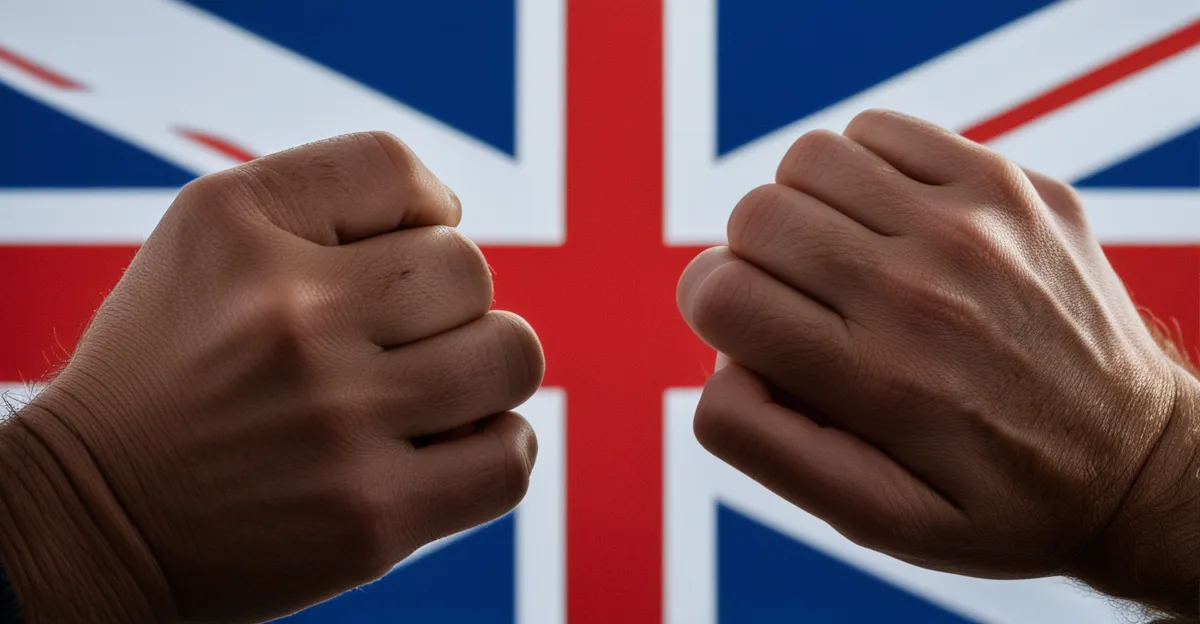Diplomatic Shifts and International Alliances Post-Brexit
Brexit diplomacy has fundamentally reshaped the UK’s approach to international relations. The UK foreign policy changes are evident in its recalibrated ties with former European Union partners. Notably, many EU member states have adopted a more cautious stance, prioritizing regulatory divergence concerns and trade barriers. This shift necessitates intricate diplomatic engagement to maintain cooperative ties despite institutional separation.
Simultaneously, UK international alliances beyond Europe have grown in strategic importance. The “special relationship” with the United States remains a cornerstone, with increased cooperation on security, trade, and technology. Additionally, Brexit diplomacy places considerable emphasis on Commonwealth countries, seeking to revitalize historic bonds and forge new economic partnerships. This reflects a deliberate UK foreign policy change aimed at diversifying its global footprint.
In parallel : How are UK education policies evolving post-pandemic?
Redefinition of the UK’s diplomatic strategies after Brexit also involves prioritizing global influence over regional integration. The UK now emphasizes flexible bilateral agreements instead of multilateral EU frameworks, tailoring partnerships to national interests. This approach presents opportunities and challenges as the UK balances sovereignty ambitions with the practical demands of diplomacy, illustrating the complex evolution of UK international alliances in the post-Brexit era.
Economic Consequences and Global Trade Realignment
Brexit has significantly reshaped UK trade after Brexit, prompting the government to seek new trade agreements beyond the former EU framework. The Brexit economic impact is evident as the UK pursues bilateral deals with countries like Japan, Australia, and the United States. These negotiations aim to offset the loss of frictionless trade within the EU by expanding the UK’s market reach globally.
Also read : What are the latest advancements in UK renewable energy projects?
The Brexit economic impact also surfaces through shifting foreign investment patterns. Some investors exhibit caution due to uncertainty around market access and regulatory differences. However, others see opportunities in the UK’s newfound autonomy to tailor trade policies suited to national priorities. This impacts the UK’s economic competitiveness, requiring agile adaptations to maintain its attractiveness as an investment destination.
Regarding trade volumes, statistical data reveal a decline in exports and imports within EU partners, while trade with non-EU countries has shown moderate growth. The realignment underscores a strategic pivot in the UK global economy, balancing traditional European markets with expanding global relationships. These transformations are central to understanding how UK trade after Brexit continues to evolve amid complex economic pressures and opportunities.
Influence and Role in International Organizations
The UK’s role in international organizations has shifted following Brexit, yet it remains a significant global actor. Despite leaving the EU, the UK maintains strong influence in the United Nations (UN) and NATO. How does Brexit affect UK influence in these bodies? The UK continues as a permanent UN Security Council member, wielding veto power and shaping global security debates. In NATO, the UK maintains a leading role, contributing considerable military resources and strategic leadership.
Brexit also prompts reevaluation of the UK’s standing within economic groups like the G7, G20, and the World Trade Organization (WTO). While no longer part of EU delegations, the UK now advances its independent voice, particularly at the WTO, where it seeks to forge trade norms aligned with its new economic priorities. This transition requires building coalitions and asserting influence without the backing of EU membership.
Case studies illustrate a mixed picture: the UK has led initiatives in cybersecurity and climate within transnational forums but faces challenges in negotiating broad consensus. These shifts reveal the UK’s determination to sustain a prominent role in international diplomacy, balancing sovereignty with multilateral cooperation as Brexit reshapes its global engagement strategy.
Global and Domestic Perceptions of the UK After Brexit
Brexit has substantially influenced Brexit global perception, affecting how the UK reputation worldwide is viewed. International media often highlight the UK’s complex transition, with some framing it as a bold assertion of sovereignty, while others focus on economic and diplomatic uncertainties. This dual narrative shapes diverse international opinion UK Brexit, with perceptions varying across regions and sectors.
Among businesses and investors, cautious sentiment has emerged due to concerns over regulatory divergence and market access. However, some view the UK’s post-Brexit autonomy as an opportunity for tailored policies and innovation. This nuanced landscape reflects shifting confidence levels, impacting foreign direct investment decisions and corporate strategies.
Polling data reveal a marked evolution in perceptions: international surveys indicate a moderate decline in favorability toward the UK immediately following Brexit, though recent trends show partial recovery as new trade deals and diplomatic efforts mature. Expatriate communities express mixed views, balancing nostalgia for EU ties with optimism about expanded Commonwealth engagement.
Understanding these complex shifts in Brexit global perception is crucial. It underscores the importance of sustained diplomatic efforts and communication strategies to reinforce the UK’s image and reassure global partners about its adaptability and continued relevance.
Expert Evaluations and Forward-Looking Analysis
Experts analyzing post-Brexit developments provide valuable insights into the Brexit impact studies, revealing both anticipated and unforeseen consequences. Diplomats generally highlight the complexity of UK foreign policy changes, noting that the shift toward bespoke bilateral agreements challenges traditional multilateral diplomacy but allows more agility. Economists emphasize mixed effects on the UK global economy, pointing to disruptions in trade continuity but recognizing opportunities in diversified markets.
What do analysts say about the UK future global role after Brexit? They suggest the UK faces a critical balancing act: maintaining influence in established international bodies while cultivating new partnerships. Many underscore the importance of leveraging Commonwealth connections alongside transatlantic ties to sustain a global footprint.
Strategic recommendations from experts often focus on reinforcing diplomatic networks, investing in innovation-driven trade sectors, and enhancing communication to counteract negative perceptions. Moreover, forward-looking analysis stresses adaptability—embracing changing geopolitical realities will be key to maximizing Brexit’s potential benefits.
Collectively, Brexit expert analysis stresses pragmatic optimism. While challenges persist, targeted policies and coherent diplomatic efforts can bolster the UK’s standing. This measured perspective guides ongoing debates about how to navigate the post-Brexit international landscape effectively.

Comments are closed